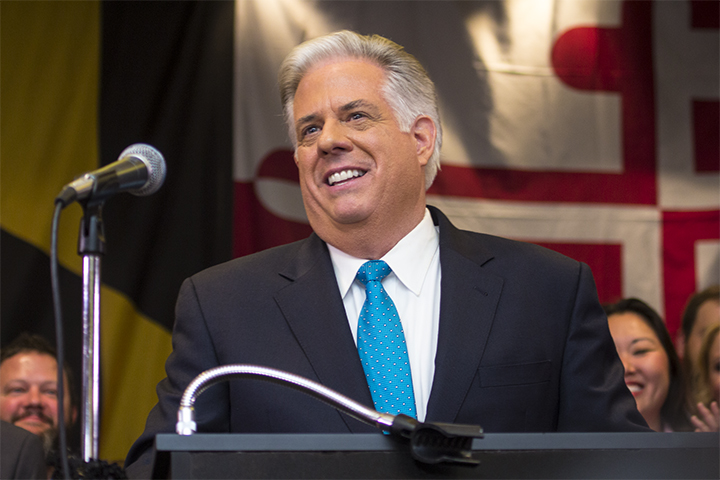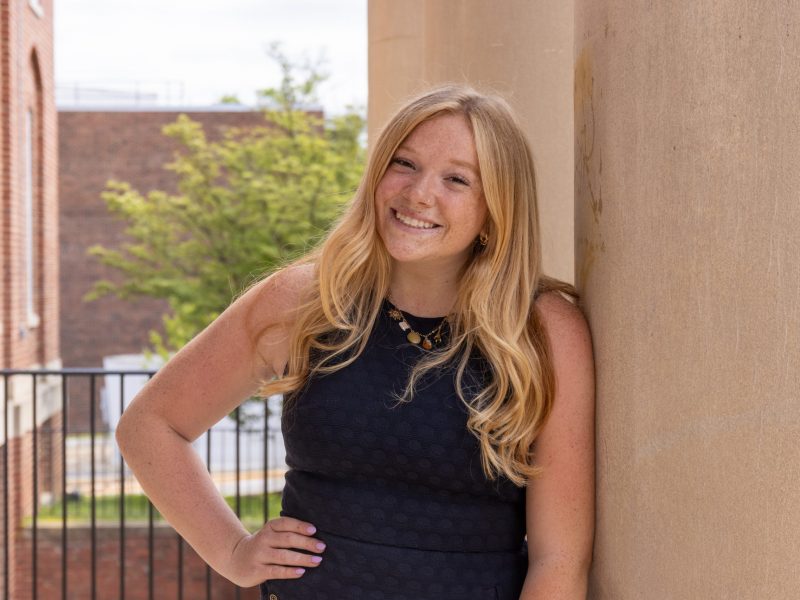As a sophomore in high school, Dunkirk native Jessica Scheibach decided one more year of high school would be enough.
With her guidance counselor, parents and the Board of Education, she made a plan to take community college courses so she could walk across the stage a year before her peers. After graduation, she took classes at the College of Southern Maryland for two semesters before transferring to the University of Maryland with sophomore standing this fall.
“I was just ready to get out of high school,” said Scheibach, now enrolled in letters and sciences at this university. “It was a lot of work. … It was a struggle but come graduation it was all worth it.”
Gov. Larry Hogan announced last Wednesday that he will incentivize a plan like Scheibach’s with a college scholarship of up to $6,000 for graduating in three years. His executive order outlines the Maryland Early Graduation Scholarship Program, which will help make college more affordable for students interested in attending a state institution starting next fall upon earning their diploma in three years or less from a public high school.
“By encouraging high-achieving students to complete high school a year early, the state can reallocate what would have been spent on a student’s last year of public high school and help with the first year of college instead,” Hogan said in a Jan. 27 news release.
In Maryland, local school systems work with students to determine eligibility for early gradation. Scheibach said she remembers she had to have a certain grade point average and meet with the Board of Education.
This university doesn’t officially record if a student graduated from high school early, but according to the governor’s office 1,065 students in Maryland graduated before the start of 12th grade last school year. Since 2010, that statistic has stayed fairly consistent.
Junior Veronica Proudford, however, said there’s no way she would have left high school early.
“I was given the opportunity to skip second grade and my parents opted not to because they didn’t want me to skip that year of my life, socially, academically. … It’s missing out on a lot of memories,” the marketing major said.
Even if she had been prepared academically to enter college, Proudford said her high school extracurriculars — everything from the debate team to step squad to student government — were too important.
While she said she understands how a financial advantage could be worth it for some students, she added she “couldn’t have done so much with just three years.”
Scheibach feels differently.
“I don’t feel like I missed out,” Scheibach said, noting she still finds Hogan’s new initiative interesting. “Three years is a lot; high school wasn’t a significant part of my life.”
Human development and quantitative methodology professor Allan Wigfield, who specializes in educational psychology, wrote in an email that he has some worries for students entering college at an early age.
“College is a ‘full-life’ experience, not just an academic one,” Wigfield wrote. “Being a great student cognitively does not mean one is mature physically or socially.”
Hogan’s initiative follows other states such as South Dakota, Arizona, Idaho, Utah, Indiana, Minnesota and Kentucky, which all financially reward students for graduating early in hopes of saving state funds in the long run.



